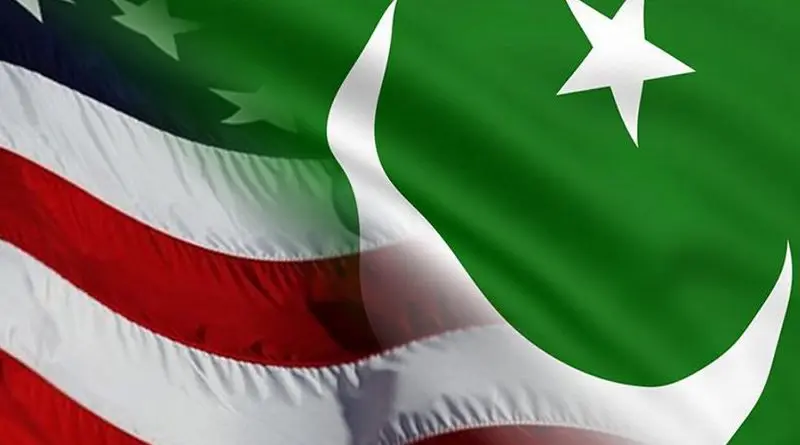Reshaping Pakistan-US Strategic Ties – OpEd
By Asad Ali
Pakistan and the US are strategic partners, having long history of political, economic and strategic cooperation. This strategic bonding is increasing in changing geostrategic environment of the region particularly in the aftermath of developments, which are taking place in Afghanistan. Both countries are also exploring other avenues of cooperation.
In this regard, a US delegation visited Islamabad for counterterrorism talks, days after an official US report of Director of US National Intelligence warned that terrorist groups are once again regrouping in the Pak-Afghan border region. During the talks with Pakistani officials in Islamabad, US hinted at reviving some of the counter-terrorism initiatives of the post-9/11 era to assist Pakistan in tackling the renewed threat of terrorism posed by TTP and other groups.
The US expects Pakistan to back its efforts to prevent terrorist groups from renewing their roots in Afghanistan under the Taliban regime. After recent terrorist attacks in Peshawar and Karachi, the United States assured Pakistan of its full support in fighting extremist groups like TTP and IS-K who have claimed responsibility for the attacks. But despite US overtures of support in the wake of several terrorist incidents in recent months including the attack on a counterterrorism centre in Bannu, it took an attack of the magnitude of the Peshawar Police Lines bombing to prompt the government to take Washington up on its offer.
Recent spike in terrorist attacks in Pakistan has once again forced US and its old ally to consider reviving their coordination against terrorism with Islamabad. These are the areas of mutual cooperation between both countries. There are groups in Afghanistan that pose a threat to both countries in general and region in particular. It’s only appropriate that both states coordinate with each other to counter them.
As US is taking least interest in Afghanistan’s security since its complete pullout from the country, Washington does not have a strong strategic incentive to partner with Pakistan on counterterrorism issues. While Washington had always looked at Afghanistan through a counter-terrorism lens, the IS-K was certainly a group that the US has been trying to keep an eye on. Biden administration, he said, has been trying to develop the capacity to manage and eliminate terrorists in this region, but noted that “the TTP issue is clearly a prominent concern for Pakistan. It’s not much of a concern for the US”.
TTP in the past has viewed the US as an enemy, but “we have seen TTP shift its position in a way that it seems to be fully focused on Pakistan right now”. That’s why there’s a bit of a disconnect, a mismatch, between the US and Pakistan on which terrorism threat constitutes the biggest concern. Obviously, for the US “it’s IS-K and what’s left of Al Qaeda, whereas for Pakistan, it’s more TTP”.
Pakistan is facing a renewed threat of terrorism since the return of Afghan Taliban in Afghanistan in August 2021. This was contrary to the expectations of Pakistan, which thought a friendly government in the neighbouring country would address its security concerns. Instead, the return of Afghan Taliban in Kabul has emboldened the banned Tehreek-e-Taliban Pakistan (TTP).
However, the Pak-US dialogue on counter terrorism has renewed hopes that Washington may not completely abandon Pakistan. Some observers believe that the US administration is going ahead with the dialogue despite the view in Washington that the TTP is no longer a threat to the US.
There were concerns that US administration might completely abandon Pakistan after the exit from Afghanistan. Observers believe that the recent flurry of engagements appear to suggest otherwise. The US statement said the counterterrorism dialogue underscores the deepening cooperation between the United States and Pakistan in a range of areas. But despite these developments, there seems eagerness on the part of the US to maintain a working relationship with Pakistan. The Biden administration’s move to approve $450 million for F-16 maintenance is evidence of that. India opposed the decision tooth and nail. The US, however, brushed aside New Delhi’s concerns, insisting that it will maintain a mutually beneficial relationship with Pakistan.
The US officials emphasised that the F16 package would help Pakistan’s counterterrorism prowess. Counterterrorism and Afghanistan is one area where the US and Pakistan need each other’s support. The US does not want to see Afghanistan once again become a sanctuary for transnational terrorist outfits. Pakistan too is seeking durable peace in the war-torn country. The US needs intelligence cooperation from Pakistan to keep an eye on all these groups while Islamabad may need Washington’s assistance to tackle these outfits if they regrouped.
There are also ample opportunities in the field of trade and investment provided Pakistan creates the right type of policies and environment. Given Pakistan’s economic challenges, the US support is also crucial for any financial assistance from international institutions controlled by Washington. For various reasons both sides will not seek divorce.

